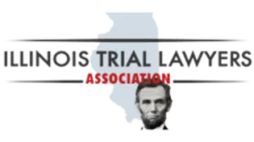Tips and Tricks for Asset Protection and Estate Planning in Illinois
Date: 10/12/2022
Author: Prime Law Group

When you’re trying to grow wealth, there are two matters that you need to become familiar with – asset protection and estate planning.
Studies show that 67% of people in the United States don’t have an estate plan. On top of having an estate plan, you need safeguards to any assets you acquire to make sure they don’t get eaten up by taxes, and to ensure that they get passed down or otherwise protected to your liking.
So, what should you know about these variables? We’re happy to shine some light.
These tips will help you out when you’re interested in asset protection estate planning.
What Is Estate Planning?
Estate planning refers to arranging your finances, assets, belongings, decisions, and other variables so that they’re taken care of in the event of your death, medical incapacitation, or other related circumstances.
It’s an important aspect of wealth-building and allows you to carry your wealth over into future generations.
Trusts and estates make up a staggering $198 billion industry. This staggering number shows how commonplace estate plans are, which speaks to just how essential they are for individuals and families.
Why Is Estate Planning Important?
You’ve probably heard people speak about the fears of dying without a will. So what makes estate planning so critically important?
Here are some reasons why it’s worth your time and attention:
Life Changes Are Always Happening
For one, estate planning is essential because life changes are a consistent part of life. By putting together an estate plan, your wealth protections are updated to go with these changes.
Each moment in life comes with situations that change your wealth and circumstances. For instance, you might have questions about whether your inheritance becomes marital property once you find a spouse.
Some of the main life changes that you need to keep in mind include:
- The birth of a new child or adopting a child
- Marrying your spouse
- Going through a divorce
- Relocating due to work or other life changes
- Dealing with the death of a loved one
- Tax laws change federally, in your state, or your local municipality
If you fail to adjust to these types of changes as they occur, it can leave your assets in limbo. Since these sorts of changes are par for the course in just about everyone’s life, you’ll be glad to know that estate planning can help you make modifications as needed.
Consider the implications of estate tax and how it might make a difference in your planning process.
You Will Have Peace of Mind as You Live and Grow Wealth
Building wealth is crucial to your quality of life. While money isn’t everything, it affords you the benefit of options, comfort, and the ability to solve problems.
Estate planning is a core part of your wealth-building journey so that you make sure that none of it was in vain. The ability to pass wealth on to your children, grandchildren, and anyone else that you decide lets you know that your efforts will keep paying off for generations to come.
Knowing that you’re making your children’s path just a little bit easier motivates people when they go to work, build businesses, and put their affairs in order. Nailing it down in a last will and trust or other document will give you peace of mind as you grow your assets.
It Helps You Maintain Your Privacy By Avoiding Probate
The probate process takes place when the state looks through the facts of your will and estate. These measures can be made public, which may not be desirable to you if you already know how you want your estate handled.
It’s typical for an estate to go to probate when there are discrepancies or disputes. By getting neat and organized with your final wishes, you’re less likely to go through probate. This allows you to keep the details private so your family can grieve without worrying about how these matters are publicized.
Estate Planning Looks After Your Family's Interests

The most important reason to handle estate planning is that it secures your family’s interests. You don’t have to worry about how your children will go to college, purchase property, or pay for their daily lives when you’ve bequeathed enough money and assets to support them.
Your last wishes also cover details related to child custody and other parental wishes that can be carried out in your absence. Knowing that everyone will be taken care of without you allows you to age peacefully and gracefully so that you can enjoy and appreciate your golden years.
It's an Excellent Way to Support a Cause That You Believe In
Estate planning is also a helpful and useful way for people to pass on money to causes that they believe in. People who plan out their estate have the discretion to donate to their charity or cause of choice.
This allows you to leave a lasting impression on society and people’s lives with your final wishes. Planning out your estate correctly lets you make sure that the amount you’d like is passed on to the people or organization that you prefer.
It Reduces Taxes and Expenses in Your Estate Plan
The more you plan, the easier it is for you to reduce expenses as you put together your estate. Simply throwing together a will, or worse, not having a will, makes your estate more susceptible to taxes and fees.
There are several funds, accounts, trusts, and other arrangements you can make that are tax-friendly, so that the maximum amount of money is passed on to the people that you love the most.
What Is Asset Protection?
Estate planning aside, there are several decisions you can make that protect your assets both in your lifetime and after your passing. These strategies are in place to help prevent your assets from being diminished due to taxation, legal seizures, and any situations that can chip away at it.
Understanding the strategies will help you hold onto more of your assets without obstacles getting in the way.
What Are the Benefits of Asset Protection?
People in the United States have a median net worth of $122,000 today. Protecting your assets is one of the best ways to keep more of your net worth. There are plenty of benefits that come with a solid asset protection plan, including:
You'll Protect Your Assets From Creditors
Debt is apart of life for individuals and businesses. It’s important that you have provisions in place so that your most valuable assets can’t be taken away in the event that you accrue some debt.
There are several forms of asset protection you can put into place that will keep them secure regardless of hard times or what kind of debt you fall into. This is especially prevalent if you do business a lot, since entrepreneurs and professionals are more susceptible to lawsuits.
Having shelters for your assets will let you address your lawsuits head-on without worrying about the outcome of the case or the settlement. You’ll be able to go through judgments, appeals, countersuits, and any other part of the process with your assets intact.
Make sure to get your business documents in order whenever you’re handling asset protection options, so that everything is ironclad and in order.
Asset Protection Keeps Your Finances Private
Just as people seek to avoid the probate process for privacy reasons, asset protection can also offer a measure of privacy. There are several decisions you can make that protect information related to how much or which properties you own. It can also prevent aspects of your net worth from being visible.
You’ll have more leverage and options on your wealth-building journey when you’re able to keep your assets and personal information private. It allows you more negotiation power for selling and acquiring companies. It also prevents certain information from being publicized in the press or other outlets.
It Helps You Minimize Losses
A core tenet of business involves growing your profits and minimizing your losses. Asset protection means you’re minimizing fees, taxes, market losses, and other types of incidentals that cut into your bottom line.
Diversifying your assets is a form of protection, as is putting it into different businesses, funds, and ventures.
This Strategy Will Help You Set Meaningful Goals
Setting meaningful goals is another benefit of asset protection. You’ll be able to set goals for your individual finances, business interests, and for your family.
Working with an asset protection professional can help you set the right benchmarks so that you know your business and finances are growing at a meaningful rate, while also accounting for potential obstacles.
What Are Your Asset Protection Options?

Asset protection is worthwhile for anyone with business and financial interests. So, what are some of the ideal ways to protect your assets?
Consider the following choices:
Establish a Company
Having a company is one of the best options to turn to when you’d like to shield your assets from losses and liabilities. Forming a Limited Liability Company (LLC) is one of the most common and effective methods of protecting your assets.
With an LLC, the assets of a business are housed under the umbrella of a company. This means that if you’re sued, they can’t come after your personal assets. You’ll have the peace of mind of knowing that your money is taken care of, and that you won’t lose everything that you worked hard for in the event that you deal with litigation.
Setting up an LLC is easier than ever, as you can often do it online with the simple clicks of a mouse. Here are some of the advantages of forming an LLC:
- As the name suggests, your liabilities are limited, so you can navigate business without worrying about losses and damages
- You will enjoy the benefit of pass-through taxation and other tax benefits
- Management is flexible and can be changed to your liking
- Having an LLC lends you more professional credibility, which can help you be taken more seriously
- LLCs are inexpensive to form and easy to renew
- They can be formed from a number of different business types, including sole proprietorships and partnerships
- LLCs have flexible membership options
Work with an attorney that can help you establish your business with the designation that works best for your assets and company needs.
Which other types of companies provide valuable asset protection?
S-Corporation Businesses
Forming an S-Corporation is one of the best ways to protect your assets. An S-Corporation provides plenty of levels of protection, just like a Limited Liability Company (LLC) does.
It’s a business structure that protects your assets and operates under rules and bylaws set out in Chapter 1 of the Internal Revenue Service (IRS) code. Here are some of the advantages of starting an S-Corp:
- It makes it easy to disperse salaries and other forms of compensation
- You can issue dividends to shareholders
- These designations are easy to convert into other types of companies
- The company has the benefit of pass-through taxation and other perks
- Transferring ownership is a straightforward process
This is a business designation that is ideal for asset protection and business as a whole.
Limited Liability Partnerships (LLPs)
Plenty of people also protect their assets through Limited Liability Partnerships (LLPs). This is a type of business designation that protects two or more partners that are invested in it. When you have multiple entities that need asset protection, an LLP could be the right decision.
You might see these types of business designations in place when two or more professionals go into business together. For instance, dentists combining talents and efforts to start a practice, or multiple lawyers opening a firm.
Some advantages of LLPs include:
- The ability to operate as an entity under a name of your choosing
- Liability protection from lawsuits and other issues
- They come with flexibility and options
- Managers can easily name members or remove membership
- You enjoy the benefits of corporate ownership
Obtaining an LLP is as simple as filling out an application and registering with the Illinois Secretary of State.
Family Limited Partnerships (FLPs)
If you or your family are interested in combining resources and protecting assets as a group, Family Limited Partnerships (FLPs) are an excellent option. This is one of the best vehicles that a family can use to pass wealth down to the next generation.
Some of the advantages of these business designations include:
- You can conduct business as a family to take care of each other
- Families can reduce the legal and accounting costs associated with combining business interests
- Taxation is favorable with an FLP
- The members of the FLP aren’t liable for debts and damages
- It’s easy for people in the FLP to participate in management and decision-making
Consider the goals that your family has collectively and figure out how an FLP can play a role.
Create Separation for Your Business Assets
Separating your various business assets is one of the best decisions you can make when you’d like them to have an umbrella of protection. Itemize your inventory and understand what role they play in your business enterprise. You might need to shift them around to different businesses, and should classify them as property of a company, rather than personal belongings.
Handling it in this way changes how you’re taxed on properties, and can also protect them from being seized in a lawsuit or bankruptcy. Many entrepreneurs invest in properties that they put under the banner of a business so that they have more protection and flexibility.
This can also affect the state of a house and how it will be passed down when you die.
Enroll in a Retirement Plan

One of the Best and most practical ways to protect your assets is by creating a retirement plan. This is the most accessible and meaningful way that you can protect your individual wealth, and you will have a tax shield that lets you grow your nest egg with plenty of interest over the years.
The government and brokerage forms have created retirement plans that act as a useful way to protect your wealth in different ways. Two of the main types of retirement accounts that you can invest in include the 401(k) and Roth Individual Retirement Account (IRA).
401(k) Retirement Accounts
This is a type of retirement account that people are issued through their places of employment. The perks put into place through these retirement accounts allow you to earn money for your later years in life without worrying about it being taxed.
Many employers also match their employees’ 401(k) accounts, which expedites the amount of money that you can set aside for retirement and grow your nest egg. Some of the benefits of 401(k) accounts include:
- Retirement savings happen easily, as a portion is automatically taken out of your paycheck each pay period
- These accounts make provisions for borrowing against your 401(k)
- You can withdraw from the account under special circumstances
- This account shelters your assets from creditors
- You can still match contributions after the age of 72
These accounts are an excellent option for anyone looking to grow their nest egg in a protected fashion, while still reducing their tax burden and protecting their money.
Roth Individual Retirement Accounts (IRA)
A Roth Individual Retirement (IRA) account is another investment vehicle that people can use when they’d like to transition into the golden years of life while protecting wealth. The Roth IRA is a type of account that people sign up for independent of their place of employment, and there are limits to how much you can invest per year.
Some of the advantages of using a Roth IRA for asset protection include:
- The benefit of your retirement wealth growing tax-free
- Limits increase for couples married filing jointly
- These accounts are widely available through brokerage firms
- You have the benefits of regular contributions, and can roll over a 401(k) into a Roth IRA whenever you leave a job
- These plans are available independent of any employer
Consider these benefits when you need a tax shelter for the money you want to live off of for the rest of your life once you’re done working.
Set Up Different Types of Trusts
There are also a variety of trusts that you can look into when you’d like to protect your assets and manage the way that your wealth is handled. A trust is a type of fund or legal vehicle that lets you pass on assets in a way that you have control over.
It lets you place stipulations on the assets and how they are controlled. Putting assets into a trust prevent them from being at stake or up for grabs in the event that a judgment is entered against you.
Use Discretion in Sharing Your Wealth
Always use discretion with the way that you discuss your wealth. While this doesn’t describe a particular plan or fund, flaunting your wealth without discretion is often one of the biggest liabilities for your assets.
Displaying your wealth without discretion can make you a target in certain circumstances that can lead to people coming after what you worked hard to obtain. Just as you hire asset protection lawyers to guard your wealth, some other lawyers are opportunistic and will take advantage of opportunities to strip you of your wealth through frivolous or unjust lawsuits.
Even fighting these lawsuits can cost you valuable money that you’d rather not part with. You don’t need to live in fear, but always let discernment guide your path so that you can steer clear of some of these pitfalls.
Handle Your Marital Affairs
Marriage is one of the best interpersonal business decisions that you can make when you and your spouse are on one accord and growing in the same direction. When you’re not, it can have catastrophic effects on your wealth-building strategy.
Handle your marital affairs with diligence and always treat it like a business. Going into a marriage, consider signing a prenuptial agreement that explains how your assets will be divided.
The state of Illinois is a equitable distribution state, which means that marital property is divided in a way that is intended with fairness in mind, though this isn’t always a 50/50 split. Everything you acquire during the marriage is considered marital property and can be claimed during the divorce process.
You can iron these sorts of decisions out in advance with a prenuptial agreement.
Of course, the best asset protection strategy is to keep your marriage together. While you should never stay in an unhealthy relationship, exhaust all avenues and resources before parting ways with your hard-earned assets in a divorce. Consider seeing a mediator or counselor that can help the two of you hash things out whenever you hit a rough patch.
Undergo Mediation Whenever necessary
Seeking mediation is also an essential part of doing business. When lawsuits or potential lawsuits hit your doorstep, negotiation and reason are your greatest tools.
Make sure that your asset protection attorneys are skilled communicators who can help you get the best end result out of any legal situation. Litigation is almost always costly, so you can avoid these expenses by keeping matters out of the courts to begin with.
Look Into Homestead Exemptions
Don’t forget to take advantage of the breaks and benefits availed to you by the government. For example, Illinois offers homestead exemptions for people 65 years old and up.
This refers to an exemption that provides relief for property taxes for the people who qualify. When you use the General Homestead Exemption (GHE), you’re exempt from the property tax increases that happen, up to $10,000. There are also exemptions in place for people with disabilities, veterans, and longtime occupants.
Other exemptions that you can look into include:
- Natural Disaster Homestead Exemption
- Returning Veterans’ Homestead Exemption
- Property Tax Extension Limitation Law (PTELL)
- Senior Citizens Assessment Freeze Homestead Exemption (SCAFHE)
- Senior Citizens Real Estate Tax Deferral Program
Read into these exemptions and programs so that you’re in the driver’s seat when it comes to understanding how to protect your wealth by using them.
How Can You Handle Your Estate Planning in Illinois?

Knowing the best way to handle your estate planning in Illinois will help you work strategically. This is the type of asset protection that makes sure that your wealth passes on to future generations and keeps working for itself.
Illinois has provisions in place that let you create the ideal situation for your descendants. Here are some points to keep in mind when handling your estate planning:
Itemize Your Assets as Much as Possible
The biggest mistake that people make with their estate planning is not knowing exactly what they’re passing on. Create an itemized list of your assets so that you can allocate them in a way that makes the most sense.
Take inventory of any important belongings that you’ve compiled over the years that you might want to pass on to your descendants. Itemize both the property that you own and its current assessed value.
Create a Last Will and Testament
Perhaps the most important practical aspect of estate planning in Illinois is the creation of a last will and testament. This is the estate planning document that lays out your final wishes, including how assets are passed along and which familial decisions you’d like to make.
A professional can create this ironclad document for you so that your estate hopefully doesn’t end up in probate and so that you don’t have to get the courts or the state involved. Some benefits of creating a last will and testament with a professional include:
- It makes deliberate decisions about the way that your assets are distributed
- These documents can combine the legal authority of a trust with the will
- Your last will and testament can be amended or revoked
- You’ll be able to keep estate taxes to a minimum
- They don’t have to be expensive to put together
This is a core part of your estate planning that you’ll need to take care of to complete your wealth journey.
Compile a Debt List
Next, you’ll also need to have a list of all your debts. The last thing you’d want is to have your descendants have to take care of your debts after you pass. In addition to passing on wealth, make sure that your debts are itemized and transparent so that there are no hidden issues that come to light once you pass.
Make provisions for how the debt will be handled and make sure that it’s not something that your estate is responsible for.
Appoint a Power of Attorney
Having a power of attorney (POA) is an essential part of the process when you need for your most critical decisions to be carried out. Talk to your lawyer about power of attorney to get to know how important they are in carrying out these decisions, and how you can communicate your wishes in advance.
A power of attorney is a legally binding document that sends these wishes in motion. From there, the person you appoint as your power of attorney will use this document to sign off on things like your medical wishes and whether to leave you on life support in the event of an emergency.
Some benefits of having power of attorney include:
- A comprehensive path to making sure your assets are protected as you pass it down to future generations
- You get to name who you want making your decisions rather than having the courts do it for you
- It clarifies your intent rather than leaving it ambiguous
- You absolve people of blame or abuse for making decisions in your absence
- They can step in for you when you’re traveling, sick, or otherwise not available
- You will have fewer delays with your how your wishes are carried out
- It provides peace of mind for you in your wealth journey
Working out a POA agreement will assist you with several aspects of your estate planning.
Figure Out Your Medical Wishes
Make sure that you’re clear about your medical and long-term care issues. Understanding how you want your health and wellness to play out gives you the chance to list these details in writing.
You can include provisions in your will and testament about how you’re to be taken care of if you’re no longer of sound mind and body, and how emergency medical decisions should be made. These are difficult conversations that must be had in advance so that your spouse, children, POA, and other parties are able to handle them.
This includes everything from what type of medical care you’ll get in your home or in a facility to how to handle a do not resuscitate (DNR) order or whether to keep you on life support if there’s no meaningful brain activity.
Create Arrangements for Guardianship
No asset is more important than your children, grandchildren, and other dependents and descendants. By creating arrangements for guardianship, you’ll be able to know they are taken care of if anything happens to you. When planning your estate, make sure that you name guardianship arrangements.
This will make sure that they’re properly taken care of and protected, rather than put into foster care or other situations. Putting these details in writing keeps the state of Illinois out of your family decisions, and allows you to keep your family intact.
Notify Everyone of Your Documents and Name an Executor
Protecting your legal interests means having your documents in order, on file, and accessible. Don’t forget to let those that need this information know where the documents are stored.
Your last will and testament and other documents should be kept with your attorney and in locations for your own safekeeping. Make sure that you keep hard copies in a safe or a safe deposit box, and keep digital copies on a hard drive that is also tucked away for safekeeping. Let the correct people know where your documents are stored so that it’s easy to retrieve it when necessary.
At the same time, take time to also name an executor for your will. This is the individual that will carry it out and oversee it so that your wishes are carried out to your liking.
Make sure to also create a list for important passwords and account numbers. This will streamline the process of handling payments and transfers that are in place.
Get Your Life Insurance in Order
Having a life insurance policy in place is also a critical part of your estate planning. Having plans in place is one thing, but you need to also have the finances in place to carry them out.
A life insurance plan will help you take care of your loved ones in the event of your early or untimely passing. This plan will pay out proceeds so that your spouse, children, and anyone you name as a dependent will be able to take care of their living expenses. There are several different types of life insurance plans that you can buy, including term and whole life insurance policies.
Set Up College Funds for Your Loved Ones

Making provisions for your children’s and grandchildren’s education is one of the most important things you can do. With student debt leaving people in the hole before they even begin their careers, you can help your future generations get a headstart by at least partially paying for their college.
You can create trusts and open accounts that take care of this, so that you know that your assets will be used correctly. Passing on cash to be used for education not only guarantees that your money will lose its value due to inflation, but your future generations can also choose to blow the money unwisely.
A 529 fund is one of the main ways that you can set aside money for a child or grandchild that will keep growing so that they’re ready to pay for tuition, books, and room and board once the time comes.
Act With Haste and Deliberateness
The best thing you can do for your estate planning is to act with deliberateness and purpose. You don’t need to be a legal expert, but when you’re constantly thinking of how you can pass your wealth on to future generations, you will constantly seek and find solutions.
Invest in the help of a legal professional that specializes in estate planning. They can help you create updates to your estate planning documents whenever necessary, which is likely to happen several times throughout your life.
These professionals can offer advice and guidance so that you’re navigating the legal landscape correctly. Perhaps most importantly, estate planning professionals will keep you up-to-date with Illinois estate planning and probate laws so that you’re not in the dark with your decision-making.
Asset Protection Estate Planning 101
These tips will help you when you need the best asset protection estate planning service that you’re looking for. Without question, protecting your assets while you’re alive, and passing them along to future generations upon your passing makes your hard work worth it.
It’s also important to recognize that this isn’t something that you can do on your own. You need the help of legal professionals that understand these areas of law thoroughly. We’d be happy to assist you with these legal needs.
Prime Law Group, LLC has attorneys that provide solutions that will help you in several areas of life. Take the time to contact us on our site or give us a call at (815)338-2040 24 hours a day.







7 Responses
Comments are closed.